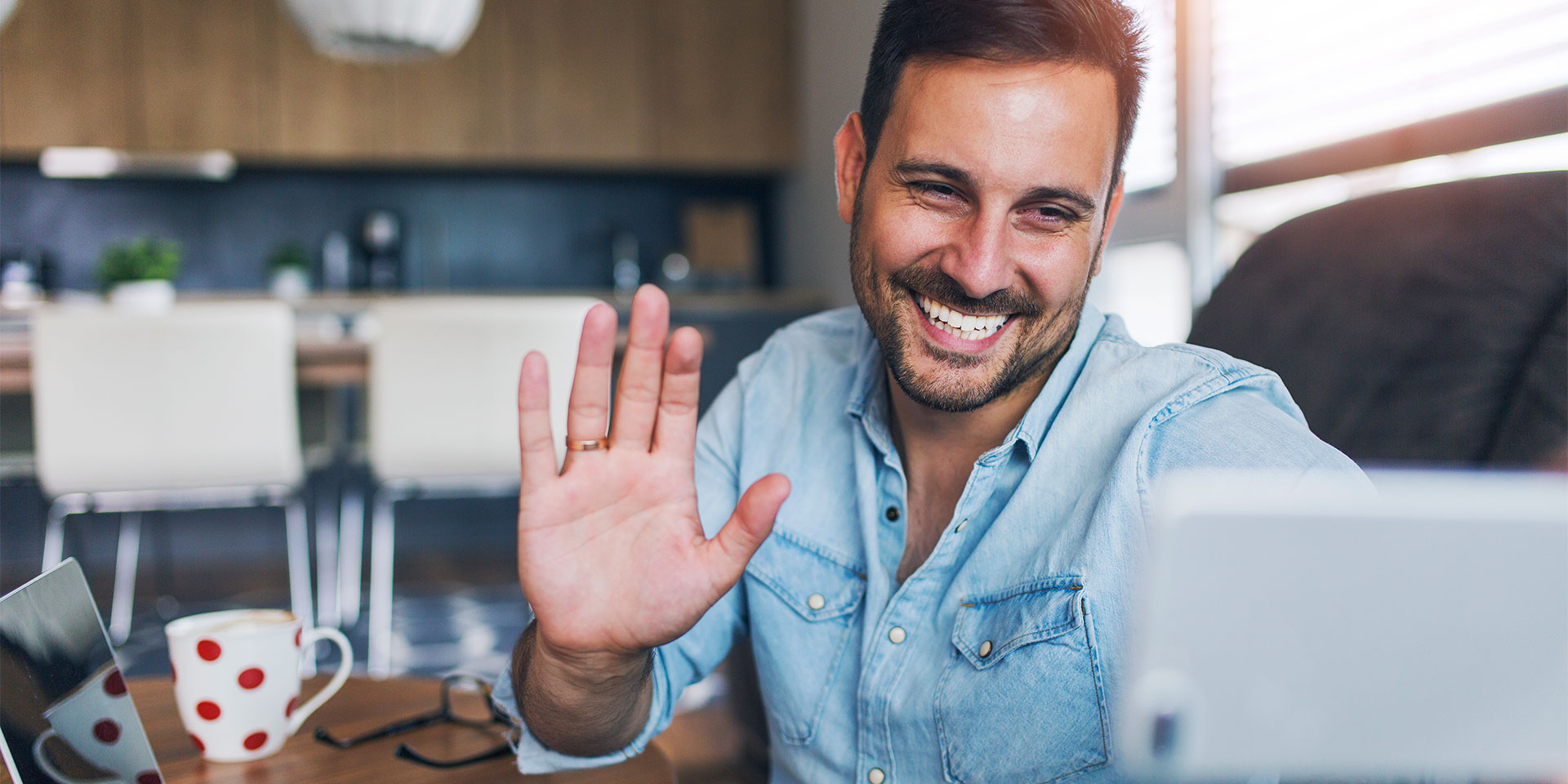The epidemiologist Marc Lipsitch thinks that social distancing will have to continue, in one way or another, hopefully in milder forms and in correlation with other activities. Lipsitch is the author of a study suggesting that social distancing may be necessary, possibly intermittently, until 2022.
Even though Europe and the United States have already begun to ease restrictions, the pandemic is not over. Researchers at Harvard University’s Chan School of Public Health looked at several scenarios of how SARS-CoV-2 could spread over the next 5 years. Experts admitted that the restrictions that came in response to the pandemic had a dramatic impact on the economy and stressed that they do not advocate for any one course of action over another, but the study concluded that there is little chance of life returning to the normalcy we knew before the onset of the virus.
With almost 4.5 million people infected globally, with no drug having been shown to be effective in treating the disease and in the absence of a vaccine, we have very few weapons to withstand the onslaught of the virus. Social distancing remains one of them.
Until specialists announce that they have prepared a vaccine and found a treatment, we have very few weapons to withstand the onslaught of the virus. Social distancing remains one of them.
Mathematics does not side with socialisation
In mid-March, Anthony Fauci, director of the US National Institute of Allergy and Infectious Diseases, warned that “the worst is yet to come,” insisting that the lockdown is by no means an overreaction in the current circumstances, but rather a chance to reduce the final toll of the pandemic. At the same time, American epidemiologist Jeff Martin, from the University of California, San Francisco, said that social distancing will become a key feature in the coming weeks, explaining that at this stage we can’t control either the biological behaviour of the virus or the susceptibility of people. But each person can limit the number and duration of contacts with others. A virus spreads with the speed of its infection rate (the average number of people infected by an already infected person), the epidemiologist explains.
Therefore, the need to maintain social distance stays relevant, even if restrictions are softening everywhere, as the global economy enters a crisis.
A few days ago, Fauci expressed his concern about the premature relaxation of anti-virus restrictions, explaining that small outbreaks could turn into epidemics, with serious consequences for the country.
The Swedish model seems to be the exception rather than the rule for managing the health crisis without restrictive measures imposed by the authorities, but here the discussion needs to be nuanced. Dr. Mike Ryan, an emergency expert at the UN, stressed that Sweden can be considered a role-model “if we want to return to a society in which we have no isolation,” but explained that most Swedes respect social distance. This has allowed for the Swedish authorities to implement public policies “in partnership with the people”. In addition, Sweden has intensified population testing, and its medical system has the capacity to manage outbreaks.
The Swedish model cannot be exported everywhere, according to Anders Tegnell, Sweden’s chief epidemiologist. In addition, when compared to the size of the population, the COVID-19 death toll in Sweden is 3-6 times higher than in other Scandinavian countries where distancing measures are mandatory, notes Dr. Vlad Mixich, an independent expert on the board of the European Agency for Safety and Health at Work.
Life goes on and respects distances
“It is better to operate under the pretence that there is transmission in your community already”, says Syra Madad. “There’s going to be disruption to daily life, but we want people to feel empowered by this. The decisions you make will ultimately affect the trajectory of this outbreak.”
Even though it is already widely known, the importance of hand washing cannot be overstated, insists Kate Vergara, a specialist in public health and infectious diseases. Vergara treated polio patients in Ethiopia and worked with Ebola survivors in Sierra Leone without contracting any disease during that time.
Washing hands is important before leaving the house to protect others, and after we return home to protect ourselves, Vergara explains. It is a very important exercise that you should practice when you go shopping, go to the barber shop or use the ATM.
If you want to exercise, there are ways to minimise the risk by choosing to walk or bike in the open air, says doctor LaMar Hasbrouck, explaining that the risk of transmitting the coronavirus decreases in ventilated areas.
Shopping can be done outside of peak hours and also online, considering that closeness to other people and contact duration are key factors in transmitting the virus.
Authorities have reconsidered their attitude towards wearing masks, recommending them as a useful precaution in slowing down the spread of the new coronavirus. The authorities’ hesitation on the subject has become “a case study of how not to communicate with the public“, says Zeynep Tufekci, a professor at the University of North Carolina. Instead of claiming that wearing a mask is useless, as was initially done, the authorities should have informed us of a painful truth, explains Tufekci: that we were not prepared for a pandemic, that there were not enough masks to go around, and that front-line medical staff needed the available masks the most.
A study at the University of Hong Kong published before the outbreak of the pandemic showed that surgical masks can be helpful in preventing the transmission of seasonal viruses, and even coronaviruses, but the researchers pointed out that this result may not be as good outside a controlled laboratory environment.
Masks are effective in capturing secretory droplets through which the new coronavirus is transmitted. Some studies have estimated that wearing a mask provides up to 5 times greater protection than if no barrier was used. Other studies reported even higher levels. Wearing a mask indoors remains one of the most effective ways we can protect and show responsibility and care towards the vulnerable, especially in the event that we are infected, but asymptomatic.
Some of these measures may seem uncomfortable and even harsh, but in times like these, mental comfort must take second place to the protective action, concludes Arthur Caplan, founder of the Division of Medical Ethics at New York University School of Medicine.
An exercise in compassion
“Now is the time to do something for your fellow community members,” says psychologist Leah Lagos, stressing that social distancing is an altruistic measure that has the potential to slow the spread of coronavirus.
This “can be an interesting experiment of compassion for people we don’t even know,” Lagos points out. The people we don’t know and who have nothing to do with us are still someone else’s grandparents, parents, siblings or children.
We should look at things from the same perspective when we consider an elderly person, going out to buy them food or medicine, thus protecting them from possible infection. “Maybe your neighbour is my grandfather. And maybe my neighbour is your mother. Helping each other can be simple. It’s time to do it. You can be the neighbour of my loved ones and I can be the neighbour of your loved ones”, writes doctor Vlad Mixich.
It’s been a while since we’ve been able to express our love through a handshake, or a warm hug for a dear friend. Their time will return sooner or later. But now we can embrace them by going out into the public space in their place, buying them items of necessity and solving their urgent problems. Keeping a safe distance between us and others, using masks, encouraging the lonely or depressed through messages and phone calls, and distributing information from reliable sources are all ways in which we can show love.
Above all, let us keep our balance and safeguard our hope. Because, no matter how chaotic the events, no matter how tight the grip of suffering, we still have a Father. And we’ve always had Him.
Carmen Lăiu is a writer for ST Network and Semnele timpului.



















